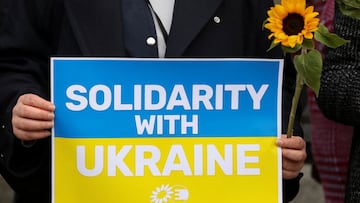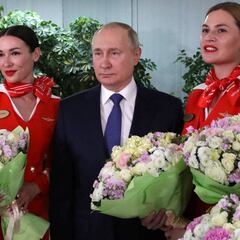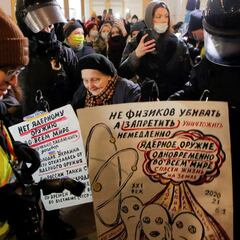Why does the war in Ukraine and Russia affect the price of sunflower oil?
The 'breadbasket of Europe' will be exporting very few of its resources during the invasion, and nations around the world will be affected.


There is, and will be, many effects of the Russian invasion of Ukraine that will be felt outside of the two nations. One of the greatest will be its effect on global food commodities, including wheat and fertiliser. Russia and Ukraine are huge producers of both wheat and fertiliser; the war is preventing the export of either. In terms of sunflower oil, Ukraine's industry is hugely for the export market, with 91 percent of its production for overseas, according to USDA data. There will be a lot of countries that won't receive the food they need.
According to the S&P Global: Commodity Insights, the Black Sea, the sea between Russia and Ukraine accounts for almost 80% of global sunflower oil exports. With trade with Russia blocked, and Ukraine in no position to coordinate any exports, there are going to be serious food shortages in many countries that need them most.
Related stories:
- What is Vladimir Putin's net worth?
- Over 559 people detained at anti-war protests in Russia
- How long can Russia fight a war in Ukraine?
- American veterans fighting Russia in Ukraine
Why will the impact on food exports be so great?
Even if Ukraine could export some of its food, the country has been ravaged by war already so much that wheat crop yields and sunflower oil plants have been destroyed on a significant scale. The lands which typically produce the most crops are the south and eastern steppe territory of Ukraine, the places which Russia is already in control of.
"There's no logistics, no production, farmers have stopped, no origination and no crush [to make sunflower oil]," a source told S&P global, "The majority of crushing plants have completely stopped."
When you worry about oil prices rising, think sunflower oil too - #Ukraine provides 80-85% of it..not to mention wheat... #UkraineRussiaWar https://t.co/2siLvPHljb
— lyse doucet (@bbclysedoucet) March 5, 2022
The impact on sunflower oil is also reflected in Russian fertiliser, key for growing plants in countries with poor soil. Svein Tore Holsether is the boss of Yara International. The company, which does business in more than 60 countries, is involved in the movement of Russian raw material around the world, said fertiliser prices are expected to continue increasing.
"We were already in a difficult situation before the war," Holsether told the BBC, "Now it's additional disruption to the supply chains and we're getting close to the most important part of this season for the Northern hemisphere, where a lot of fertiliser needs to move on and that will quite likely be impacted."
He says world crop yields could be expected to drop by a full half in 2022. Clearly, as the stocks of important crops decreases, the price will rise. There are so many factors which affect this, another being the rise in natural gas prices, of which Russia is the world's largest exporter.
Which countries will be affected the worst by the halting of exports?
While consumers in Europe and the US will see price rises, compared to a lot of the world the west are in a relatively healthy place. In terms of wheat, the UK consumes 90 percent of what it produces, meaning price fluctuations can mostly be regulated internally. However, other nations that rely on mass food imports are not so lucky.
Ukraine is one of the guarantors of global food security
— MFA of Ukraine 🇺🇦 (@MFA_Ukraine) March 5, 2022
55% — share of Ukrainian sunflower oil in world exports
Mlns of people at this very moment are eating smth delicious prepared with use 🇺🇦 sunflower oil grown
Defending Ukraine also protects the world from hunger & famine pic.twitter.com/gs7iffjQ0l
Related stories
More than 40 percent of Ukraine's wheat and corn export went to the Middle East or Africa in 2021. The end of this trade is almost certain to exacerbate food shortages in these nations. Particularly acutely affected will be Ethiopia, no stranger to famines. An ongoing conflict in the northern province of Tigray is experiencing starvation, with an estimated 400,000 people living in 'famine like conditions', while a further six million are in serious need of aid.
That a country like Ethiopia will stop receiving such vital produce is another black mark against Russia's callous invasion.

